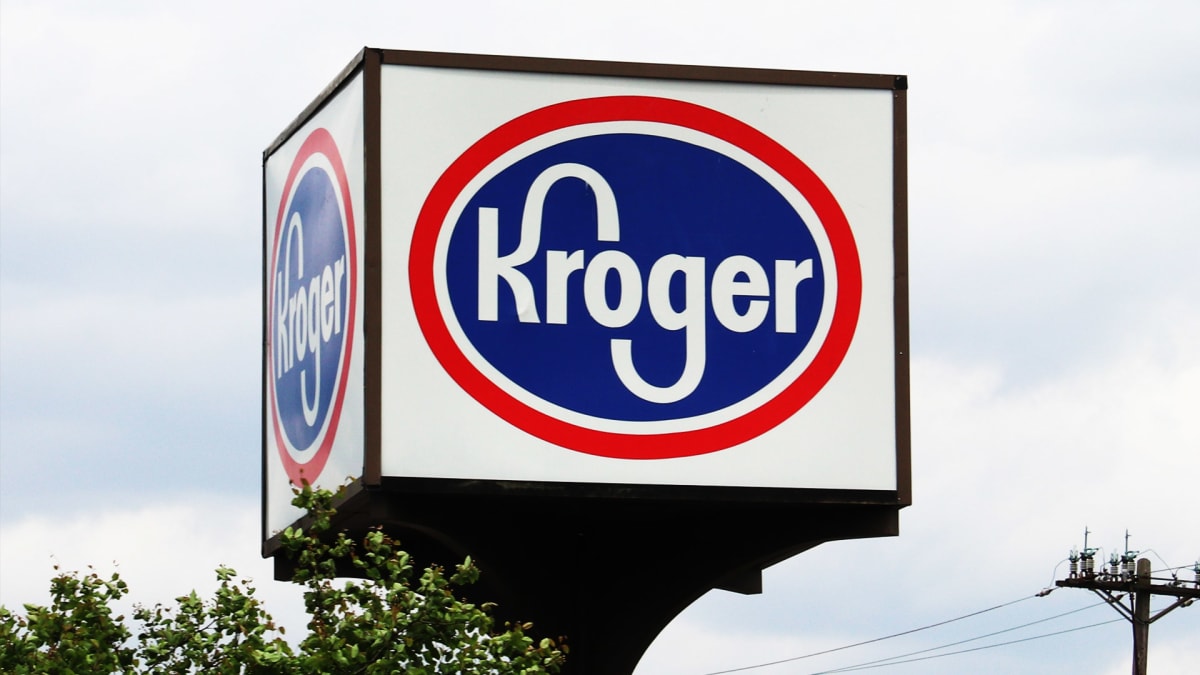
Krogering is about to get a lot easier in a key market for the grocery store operator.
Kroger (KR), the largest supermarket operator in the U.S., turned its name into a verb in a jingle to describe the shopping experience at its stores.
The giant retailer has come a long way since 1883, when Barney Kroger invested his life savings of $372 to open a store at 66 Pearl Street in downtown Cincinnati.
The company now owns nearly 2,800 stores in 35 states operating under 28 different names.
In October, Kroger and Albertsons (ACI) agreed to a $25 billion merger deal that will create the country's biggest standalone grocery chain with nearly 5,000 stores and annual revenues of more than $200 billion. The deal still faces regulatory scrutiny.
The two companies are advancing plans to sell between 250 and 300 stores to help alleviate U.S. antitrust concerns over their combination, Reuters reported on Feb. 10, citing to people familiar with the matter.
Being on top means having a bullseye on your back and Kroger is facing growting competition from bog box retailers Walmart (WMT), Costco (COST) and Target (TGT) .
Amping up the technology is one way of keeping ahead of your rivals and earlier this month Kroger announced the opening of a new spoke facility in South Florida that will deliver groceries to consumers' front doors.
The 60,000-square-foot spoke facility will employ 90 people and work in conjunction with the Groveland, Florida fulfillment center.
"Whether they are using the Kroger app or browsing our weekly ad at Kroger.com, customers can enjoy fresh, high-quality, affordable groceries delivered by best-in-class uniformed drivers," Bill Bennett, Kroger Vice President, and Head of E-commerce, said in a statement.
Kroger said the expansion to South Florida, including Miami, extends its collaboration with Ocado Group, a UK-based grocery e-commerce company.
Kroger Posts Strong Earnings
Kroger said it currently operates customer fulfillment centers in Monroe, OH, Groveland, FL, Forest Park, GA, Pleasant Prairie, WI, Dallas, TX, Romulus, MI and Aurora, CO with additional customer fulfillment centers slated for California, Frederick, MD, Phoenix, AZ, Cleveland, OH, Charlotte, NC, as well as South Florida and the Northeast.
In December, Kroger posted stronger-than-expected third quarter earnings, while boosting its 2022 profit forecast for the third time in a year, as the grocery store chain retained more value-focused shoppers with lower prices and a bigger push into online sales.
But then in January, R5 Capital analyst Scott Mushkin double downgraded Kroger to sell from buy with a $37 price target.
Mushkin said that the firm's research indicates that supermarket industry fundamentals have "deteriorated rapidly" and it fears the "industry could face a very unwelcome climate of rising unemployment, slowing inflation, volume pressures and increased promotional activities" in the next couple of quarters.
The analyst sees Kroger as "particularly vulnerable" given that it competes more than any supermarket against Walmart and other discounters, prompting the firm's recommendation that investors with a shorter time horizon of six to nine months sell the stock.
However, the firm still believes that the longer-term story around the acquisition of Albertsons remains intact, which it says "suggests an equity value over $50 is possible post the close."







